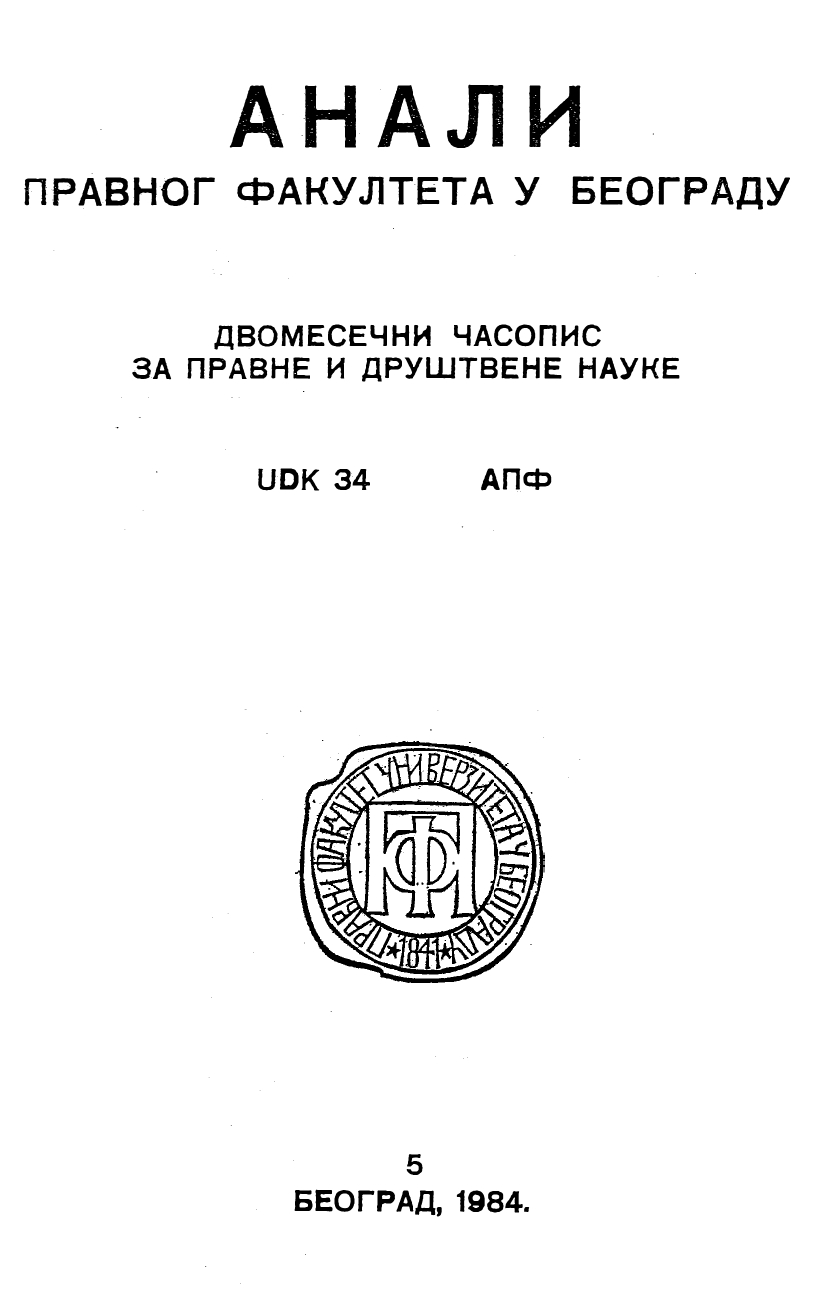ДОГОВОРЕНО ПРИЗНАЊЕ У АНГЛОСАКСОНСКОМ КРИВИЧНОМ ПОСТУПКУ
PLEA BARGAINING IN THE ANGLO-SAXON CRIMINAL PROCEDURE
Author(s): Zorica MrševićSubject(s): Law, Constitution, Jurisprudence, Criminal Law
Published by: Правни факултет Универзитета у Београду
Summary/Abstract: Plea bargaining represents an institute peculiar to the Anglo-Saxon criminal procedure, the essence of which lies in the bargaining between the prosecution (and judiciary) on the one side, and the defendant on the other, leading to a situation in which the defendant is able to plead to a lesser offence than the one he is prosecuted for, or at least a lesser form of the same offence. And since the defendant’s plea in the Anglo-Saxon procedure also marks its termination, plea bargaining is a specific mechanism leading to this end in far less time and far less expense to the State. In exchange for this plea, the defendant is offered a guarantee of sanction which consequently must be more lenient to the defendant, since he has made a plea to a lesser offence or at least its lesser form. In particular cases, plea bargaining is more frequent in two situations: either, where due to the specific state of the evidence before the court the outcome of the procedure seems uncertain, inducing the prosecution to insist on a plea of guilt of the defendant by offering considerate concessions, or, where there is a certainty of a severe penalty, and the defendant, in fear of this outcome and without any particular concessions from the prosecution ((save for the fact that a lesser offence carries a more lenient sentence), insists to plead guilty. Although this institute is not provided or regulated by law or other statutory provisions, it has been completely adopted in practice, and today only several decades from its introduction in practice, it represents one of the indispensible legal and judicial mechanisms, without the implementation of which its efficiency would seriously be jeopardised in its essence. Its implementation in practice is supported by the State and judiciary, the political organs of the relative countries, and in legal theory as well, while certain objections and suspicions have been posed by the so-called lay-man public opinion. It ssees plea bargaining as a means of evading the truth by manipulation of the criminal procedure mechanism by the unscrupulous criminals and their skillful lawyers. There is also the fear of ready resort to plea bargaining by innocently accused citizens, but, apart from the relief it brings to the State and judiciary, which is its main advantage, legal theory frequently insists with sound basis that the agreement of the institute of plea bargaining with the essential principles of this type of criminal procedure, such as the right of the defendant to a fair trial, right to an expedient trial, right to professional legal defence (representation), »right of disposition« etc.
Journal: Анали Правног факултета у Београду
- Issue Year: 32/1984
- Issue No: 5
- Page Range: 692-707
- Page Count: 16
- Language: Serbian

